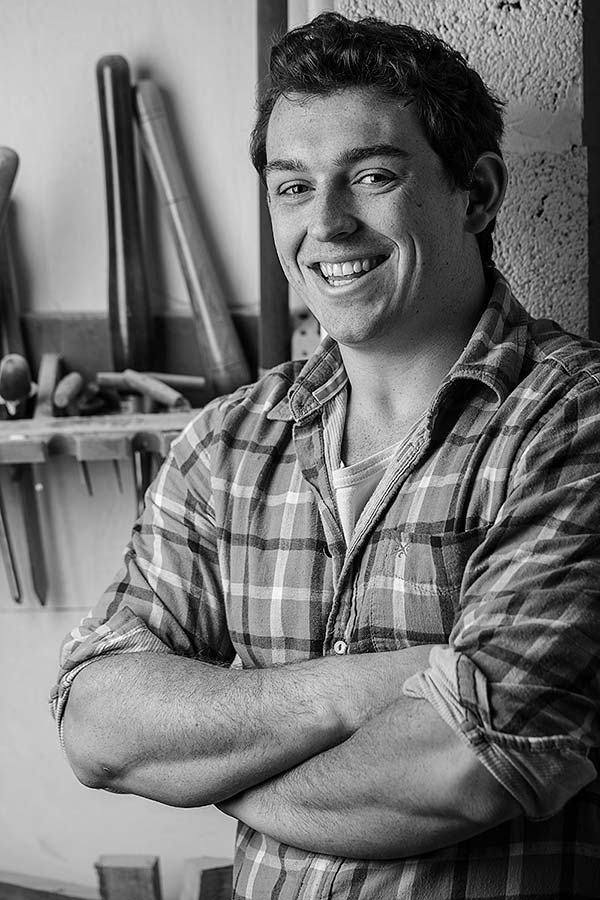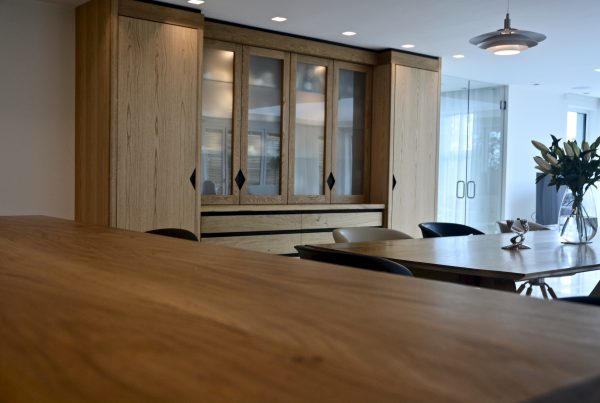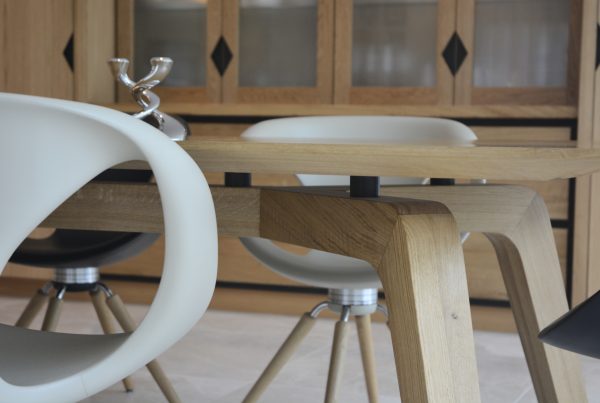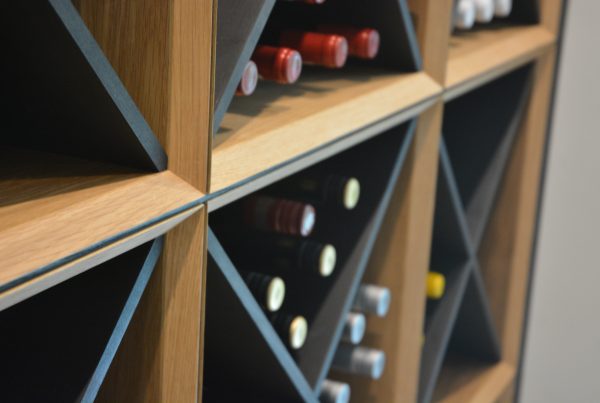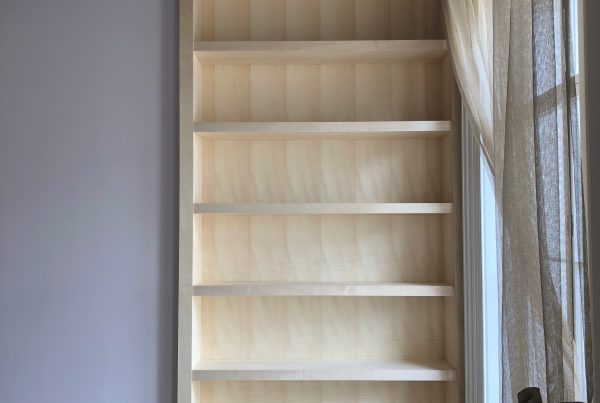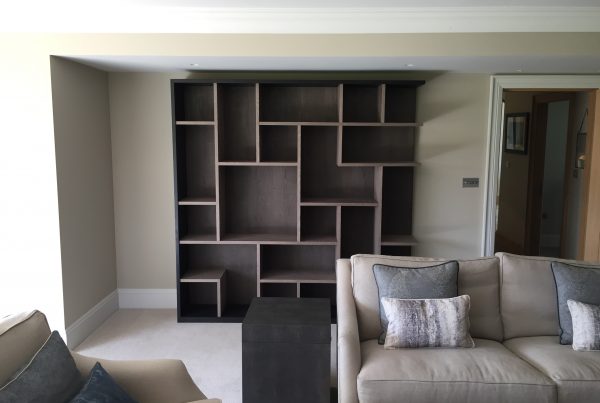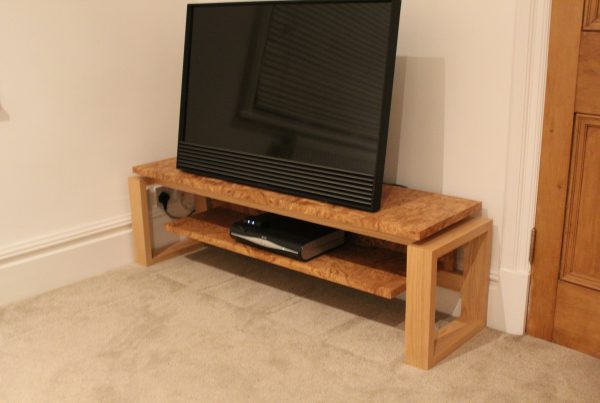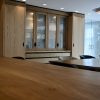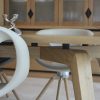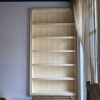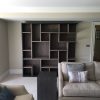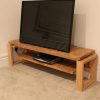Nathan trained and worked locally for kitchen and cabinet makers for 5 years. He completed a modern apprenticeship and gained NVQ qualifications in traditional furniture and cabinet making. Whilst training he set up another business selling chopping boards and cheese boards, (www.barkandburr.co.uk) which really kicked off his passion for business in the woodworking trade.
Everything made is designed, handcrafted and finished in house. When it comes to designing a new piece of furniture Nathan strives to not only design something functional but also elegant and refined with a unique twist. Inspiration is taken mainly form the wood itself, trying to show it off to its maximum potential. Local timber is used as much as possible, he works closely with some trusted local sawmills and tree surgeons to obtain top quality timber to produce his work. A lot of the timber is unusual with stunning wild grain and streaks of colour. If local or English timber isn’t going to be used in a piece of furniture, FSC certified and responsibly sourced imported timber is used.
One of the key aims of Nathan Millar Furniture is to source everything from within 50 miles of the workshop, not only timber but all materials. For example, he makes his own bees wax polish using wax from bees who live less than 5 miles from the workshop. If something can’t be found within the 50 miles he uses suppliers as close as possible.
The 50 radius mile rule is there to try to reduce the carbon footprint of the business. As a tree grows it absorbs carbon through its leaves and then goes to produce the structural fibres of the tree itself. The businesses carbon emissions are kept to a minimum to try to ensure the energy spent in making an item of furniture never exceeds the absorbed carbon within the wood itself. Energy intensive processes are also reduced as much as possible.
Wood waste is kept to a minimum with off cuts being made into other smaller items. Very small off cuts and shavings are taken home to burn and keep the family warm.
